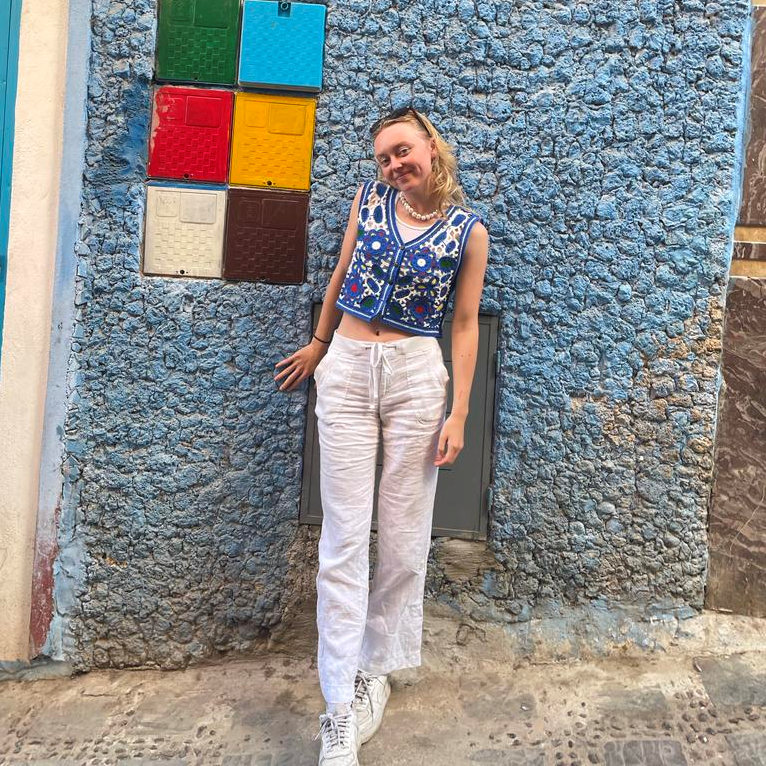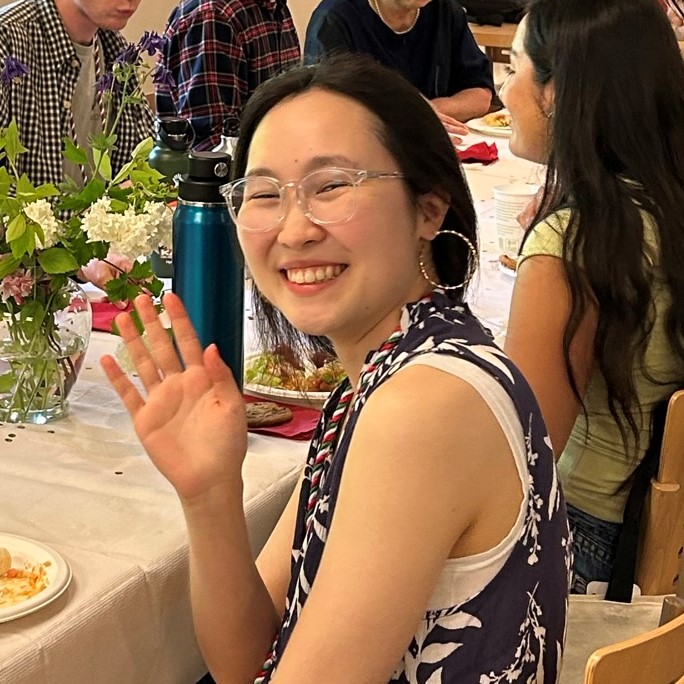
Featured Navigation Links
Arabic
Minor
Chinese
Minor
French
Major & Minor
Japanese
Minor
Spanish
Major & Minor
We are a diverse group of faculty that come from China, Ecuador, France, Japan, Mexico, Morocco, Nicaragua, Senegal, Spain, the United States and Venezuela, and we would like to invite you to come and explore the world with us!
The Modern Languages and Cultures Department is committed to educating the whole person. Our mission is to create future professionals concerned with social justice and equip them with adequate skills for its practice domestically and abroad.
Our programs in Arabic, Chinese, French, Japanese, and Spanish provide students with:
- Language proficiency and essential skills to establish meaningful personal and intellectual connections with a global community.
- Knowledge, tools, and experiences to broaden their view of the world.
- Ability to be inclusive, treat others with dignity and make a difference by learning to communicate with and appreciate other cultures, and
- Intercultural cooperation proficiencies.
Our curricula are the gateway to cultivating citizens of the world. We seek to educate multicultural, responsible leaders, who are engaged with empowering traditionally-marginalized communities and pursuing the common good of diverse peoples.
Learning about other cultures and civilizations through their language leads to a better understanding of one's self and the world in which we live. This process has a profound impact on its learners as:
- It challenges students to articulate their thoughts and convey meaning in another language.
- Students start to reflect on their position in society, and that of others, which allows them to respectfully engage their community locally and globally.
- Students develop the ability to put themselves in the shoes of people that come from different backgrounds, thus becoming empathic and compassionate. Students are able to understand the experiences of people from other countries that live in the United States who may have difficulties navigating the English language.
- It allows students to travel the world and embrace it with confidence and joy!
-
For information about the Spanish Intensive Summer Courses, please click here.
-
Welcome to the Spanish Intensive Summer Courses!
Here you will find some basic steps on how and where to find information about the Spanish Intensive Summer Courses.
If you would like to take SPAN-1150, start your search on MySeattleU by selecting Spanish on the subject and under the "Smr Qtr 1st 4-WEEK 2023" term. Once there you will find a tab that says: "View available Sections for SPAN-1150." When you click there, it expands to show you the section. If you would like to know the specific start and end dates for each course, you must click on the underlined course name, in this case, SPAN-1150-01, and a box will open where you will find a row that reads "Additional Information".
Under the term "Smr Qtr 8-WEEK 2023" you will find the information for SPAN-1250 and SPAN-1350. Again, please make sure to click on the underlined course number (SPAN-1250-01, SPAN-1350-01) to be able to view the specific dates for each class in the "Additional Information" row.
If you would like, you are able to register for all three classes or just one or two. If you have already taken SPAN-1150, you can register for 1250 and 1350 but please keep in mind that these courses must be taken in sequence. If you would like to start with SPAN-1150 and are having trouble registering for SPAN-1250 and 1350, please contact the Modern Languages and Cultures Department's Administrative Assistant, Noelle Hardman, nhardman@seattleu.edu, who will be able to manually register you for the course.
For your ease, below are the dates for each course:
Span 1150
1ST-4-WEEK; June 20th - July 7th
Span 1250
8-WEEK; PREQ: SPAN-1150; July 8th - July 26th
Span 1350
8-WEEK; PREQ: SPAN-1150, SPAN-1250; July 27th -August 11th
We hope to see you in the summer!
- Professors Jaime Perozo and Sonia Barrios Tinoco
Featured Student Spotlight

2023 Michels Family Award Winner - Schuyler Dull
At first, signing up to be a French major may call to mind grammar structures, funky pronunciation, and baguettes. While I have consumed many a baguette during my time as a French major, what I did not anticipate was the opening up of the world around me. Since French is the lingua franca and/or official language of entire regions of the world, being able to speak and read French, as well as communicate with people from these regions, has changed my life. I was fortunate enough to travel to France, Morocco, and Senegal for my final year at SU, an opportunity that would not have been possible without the incredible professors and program leaders of the French major. I cannot be grateful enough for my extraordinary final year of university and a fulfilling adventure in the French major.
2023 Michels Family Award Winner - Cullin Egge
My experience in the Spanish major has been life changing. I have had the opportunity to study abroad and make unforgettable memories, take a variety of interesting and engaging classes, develop strong relationships with professors that extend beyond the classroom, and of course grow in my Spanish fluency and knowledge. I have also enjoyed my three years as a Spanish tutor and conversation group leader. Using my skills to help others increase their confidence and passion for language learning has been incredibly rewarding. I am excited to see where my experience with Spanish takes me in the future!

2023 Michels Family Award Winner - Michelle Nurzhanov
As a student who is not a heritage speaker, I am deeply honored by my Spanish professors’ patience and kindness in teaching me their native language and correcting my vocabulary/conjugation errors. Reading Gabriel García-Márquez in the original Spanish text and writing entire literary analyses in Spanish have been the most challenging assignments of my time at SU. After this program, I now have a keyboard setting to type accent marks, a few books written entirely in Spanish, and a desire to travel to Latin America to see the places in my textbooks in real life. Muchas gracias por todo, I say to my Spanish professors and classmates. Thank you for your hard work and support.
Ready to Transfer to SU?
Contact Us
Noelle Hardman
Administrative Assistant
206.296.5380
nhardman@seattleu.edu
Sonia Barrios Tinoco
Chair
206.296.2458
barrioss@seattleu.edu